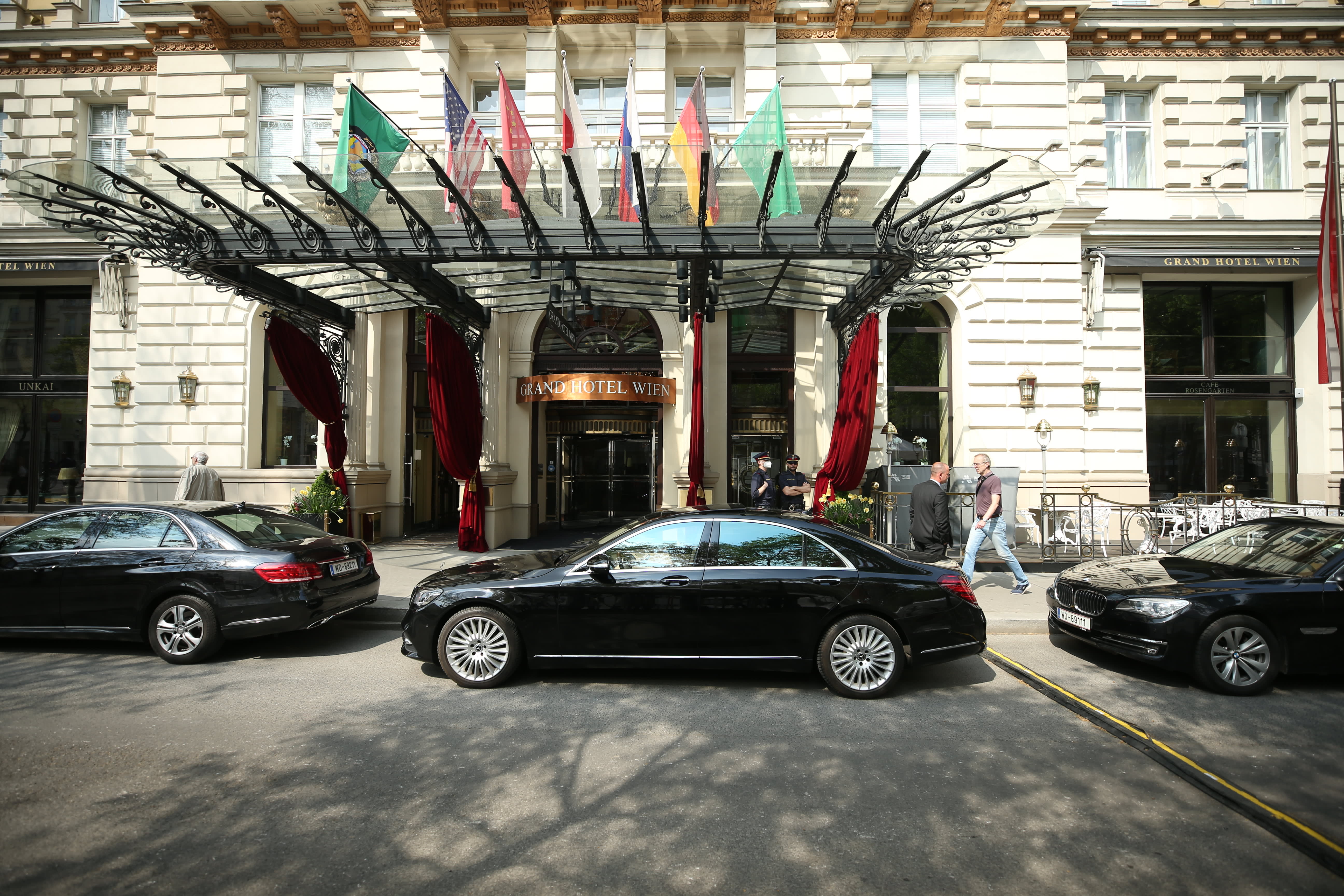[ad_1]
Company cars are seen in front of the Grand Hotel Wien after a meeting of the Joint Comprehensive Plan of Action (JCPOA) on the “Iran nuclear deal” in Vienna, Austria, on May 01, 2021.
Askin Kiyagan | Anadolu Agency | Getty Images
Further talks took place on Sunday between Iran and world powers in an attempt to negotiate and restore a groundbreaking 2015 deal to contain Iran’s nuclear development that was later abandoned by the Trump administration.
It was the first official meeting since the Iranian justice chief’s landslide victory in the presidential election last week.
Several diplomats involved in the talks said they had made progress recently and that the outcomes they were negotiating needed to be approved by their respective governments. However, there were also concerns that the election of Iran’s new President Ebrahim Raisi could further complicate a possible return to the deal.
High-ranking diplomats from China, Germany, France, Russia and Great Britain met in a hotel in the Austrian capital for the final meeting of the sixth round of talks in Vienna.
The Russian top representative Mikhail Ulyanov wrote in a tweet late on Saturday that the members of the Joint Comprehensive Plan of Action (JCPOA) “will decide on the further course of action in the Vienna talks not yet concluded.”
Iran’s deputy foreign minister for political affairs said on Sunday that almost all of the JCPOA agreement documents were willingly negotiated and that the diplomats involved would be returning to their home countries shortly – not only for further consultations with their governments, but also for final decision-making.
“We are now in a situation in which we believe that almost all the agreement documents are ready,” said Seyyed Abbas Araghchi before the meeting in Vienna, according to the semi-official Iranian news agency Mehr.
“Of the main issues that are still controversial, some have been resolved and some remain, but it has taken a very precise form and it is pretty clear what the dimensions of these disputes are,” he added.
The US has no representative at the table in Vienna because the former US President Donald Trump unilaterally pulled the country out of the agreement in 2018. Trump has also restored and tightened sanctions to force Iran to renegotiate the pact with further concessions.
However, the administration of US President Joe Biden has signaled its readiness to re-accede to the agreement under conditions that would result in the United States scaling back sanctions and Iran returning to its 2015 nuclear commitments. A US delegation in Vienna is taking part in indirect talks with Iran, with diplomats from the other world powers acting as mediators.
Sunday’s meeting was overshadowed by the election of Raisi in Iran, which gives hardliners firm control of the government at a time when Tehran is enriching uranium at the highest levels ever, albeit still below weapon grade. Tensions remain high with both the US and Israel, who are believed to have carried out a series of attacks on Iranian nuclear facilities and murdered the scientist who created his military nuclear program decades earlier.
In Jerusalem, the new Israeli Prime Minister, Naftali Bennett, warned on Sunday that Raisi’s election as Iranian President was “the last chance for world powers to wake up before going back to the nuclear deal and understanding who they are doing business with.
“These guys are murderers, mass murderers: a regime of brutal executioners must never have weapons of mass destruction that enable them to kill millions, not thousands,” he said.
Israel has long declared that it rejects archenemy Iran’s nuclear program and would prevent Tehran from obtaining nuclear weapons. Iran insists that its nuclear program is for peaceful purposes.
European Union foreign affairs chief Josep Borrell said he hoped the election of Iran’s new president would not be an obstacle to an agreement in Vienna.
“We are very close. We have been working for two months,” Borrell told reporters during a visit to the Lebanese capital, Beirut. “We have invested a lot of political capital in this. So I hope that the election results will not be the last obstacle to ruin the negotiation process.”
Raisi is the first Iranian president to be sanctioned by the US government before he took office for his involvement in the mass executions of 1988 and his time as head of the internationally criticized Iranian judiciary – one of the world’s leading executioners.
[ad_2]

